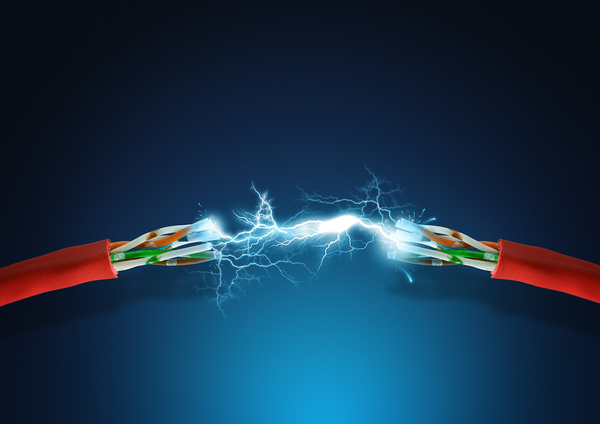Homeowner Wiring
defines an “owner’s exemption” as an exemption from licensure requirements for an individual owner who is personally installing electrical wiring and fixtures in a residence or farmstead which is owned and resided in or on by the person installing the electrical wiring or fixtures.
however, a wiring permit is required when a $10 or more fee is generated (see below). You may purchase a wiring permit from the Electrical Commission. (Note: Homeowners are not allowed to conduct an installation on commercial or rental property with a Homeowner’s permit. Homeowners of a mobile home or modular home are not allowed to conduct an installation on these structures unless the units are located on an owner occupied lot at the time the installation is conducted.
A fee is generated per the Fees for Inspections schedule. For instance, an individual may change up to four openings in a home before a permit is generated as the first 40 openings are $2 per opening. Opening could be fixtures, receptacles, switches, etc. Therefore you would not be required to pull a permit to change a light or two or four. But if you change out five or more openings of any combination, a fee of $10 or more would be generated requiring a permit. Please note, an installer may request an inspection for any installation whether it generates a $10 fee or not.
inspector or the Commission office for an inspection. You are required to notify your local inspector and have a rough-in inspection completed prior to insulating, sheet rocking, paneling or covering the installation with any other type of material which would inhibit the rough-in inspection. Underground wiring must be inspected before the trench is back-filled.
Rough-in — This is when you have all of the boxes mounted, all wires installed to all of the boxes and properly stapled, supported and exposed for inspection (with no insulation, drywall or other material covering the wiring).
Final Inspection — Everything should be complete at this time. All light fixtures, receptacles, switches, cover plates and other equipment such as water heaters, furnaces and other fixed in place equipment should be installed and energized.

Electrical Concepts and Terms All Home Inspectors Should Know
Home inspectors often have a background in building, whether in construction, roofing, plumbing, electrical, or another important home system. So as a home inspector, you may already know something about inspecting electrical systems. In case you don’t, or your knowledge is incomplete, we’ve put together a short guide for you
First, we want to reiterate how dangerous electricity can be. Whenever you inspect this important home system, it’s critical that you understand exactly how to go about it. Any misstep can lead to injury or even death.
Electrical Terms to Know
Sparkfun calls voltage, current, and resistance the building blocks of electricity. What does each of these terms mean? It’s easiest to understand if you think of all three at once since they are so closely interrelated.
Voltage: The amount of pressure in the current
Current: The flow of electricity
Resistance: The level of difficulty the current has flowing through the circuit
Home inspectors usually only measure the voltage in a home to make sure the wiring is functioning and safe. This is usually done with a multimeter.
Hot wires are usually encased in black or red insulating plastic, but you can’t rely on this 100 percent. The wiring might be very old, it might have been done incorrectly, or all the wiring might be black. In some instances, the hot wire is designated by electrical tape on the end of the connection. So you don’t want to assume and touch the wrong wire; it could be fatal.

Electrical Inspector Careers
Electrical inspectors are responsible for verifying that proper materials, connections and wiring methods are used in everything from lighting and security systems to HVAC systems and major appliances during construction and remodel jobs to ensure safety and efficiency standards are met.
An electrical inspector is responsible for testing and checking electrical wiring, circuitry, and equipment in buildings, homes, and industrial installations. They validate the size and type of wiring used, the ratings of electrical panels and connectors, and verify that the installation conforms to local and national electrical code requirements
Most electrical inspectors start out as regular electricians. They develop their expertise in the field through years of hands-on experience, working their way up from apprentice, to journeyman, to master electrician. Working as an inspector is usually less physically demanding and puts a premium on the hard-won knowledge electricians have gained from many years in the field.
Electrical Inspectors on the Job Site and In the Office
Electrical inspectors work independently. They are usually responsible for booking their own appointments and making contact with contractors and project managers working jobs that need inspections.
As they progress in their field, inspectors may take on additional responsibilities that include:
Reviewing reports from other inspectors
Participating in code review conferences
Providing input on possible additions and changes to local building codes
On the Job Site
Inspectors often find themselves working in active construction sites while walls are still open and wiring exposed. This comes with all the hazards and difficulties you would expect, including having to work around other tradesmen finishing their projects. Just like everybody else on the job, electrical inspectors wear personal protective equipment like helmets and high-visibility vests.

Electrical Inspections
When a wiring permit is opened by your electrical contractor, and a wiring inspection is scheduled through our Wiring Permit Contact Centre, one of our experienced inspectors will visit your site to start the inspection process.
Who can perform electrical and communications installations?
Electrical installations must be performed by someone who holds a certificate of qualification in the Electrical Construction trade issued by the Department of Labour and Advanced Education. Communication wiring installations must be completed by a holder of a certificate as a Communications Cabling Specialist as issued by Department of Labour and Advanced Education.
What if I am connecting service to a location that has not had electricity in more than a year?
We require a general inspection permit for those premises where electrical service has been disconnected for a period greater than one year. Please contact a qualified electrician. Your electrician will arrange for an inspection through us as required under the Electrical Installation and Inspection Act.
What is involved in an electrical inspection and why perform them?
wiring inspector will visit the site and perform an electrical inspection. Inspections are required prior to any wiring being concealed with backfill, lathing, boarding, insulation or other covering materials. This inspection is referred to as a rough-in inspection. Upon the completion of the wiring, the contractor will arrange for a final inspection. A final inspection may include but not limited to an inspection of electrical devices, lighting, and labeling of electrical panels and equipment.
Does electrical equipment need to be approved? If so, by whom?
In accordance with the Electrical Code Regulations Section 15(1), no corporation, company, or person shall sell, have for sale, display, rent, lease, advertise, install or use any electrical device, appliance or equipment unless it is certified as approved equipment, as defined in the Code, by a certification organization acceptable to the Department of Labour’s Chief Electrical Inspector
Electrical Permits & Inspections
To ensure public safety, approval must be issued before the installation or repair of any electrical equipment commences, including:
Wiring installations in residential, public and industrial / commercial sites and or buildings
Installations for the private generation of electricity
The installation of apparatus such as generators, transformers, switchboards and large storage batteries
Electrical Permits are only issued to Registered Electrical Contractors except as noted below:
An individual or organization may request that an inspection be performed by the Government Service Centre to determine the condition of an existing electrical system and for reconnection of electrical service.
Fees
The fees for electrical permits and inspections are listed on the application. The total permit cost will vary depending on the nature and extent of the work to be completed.